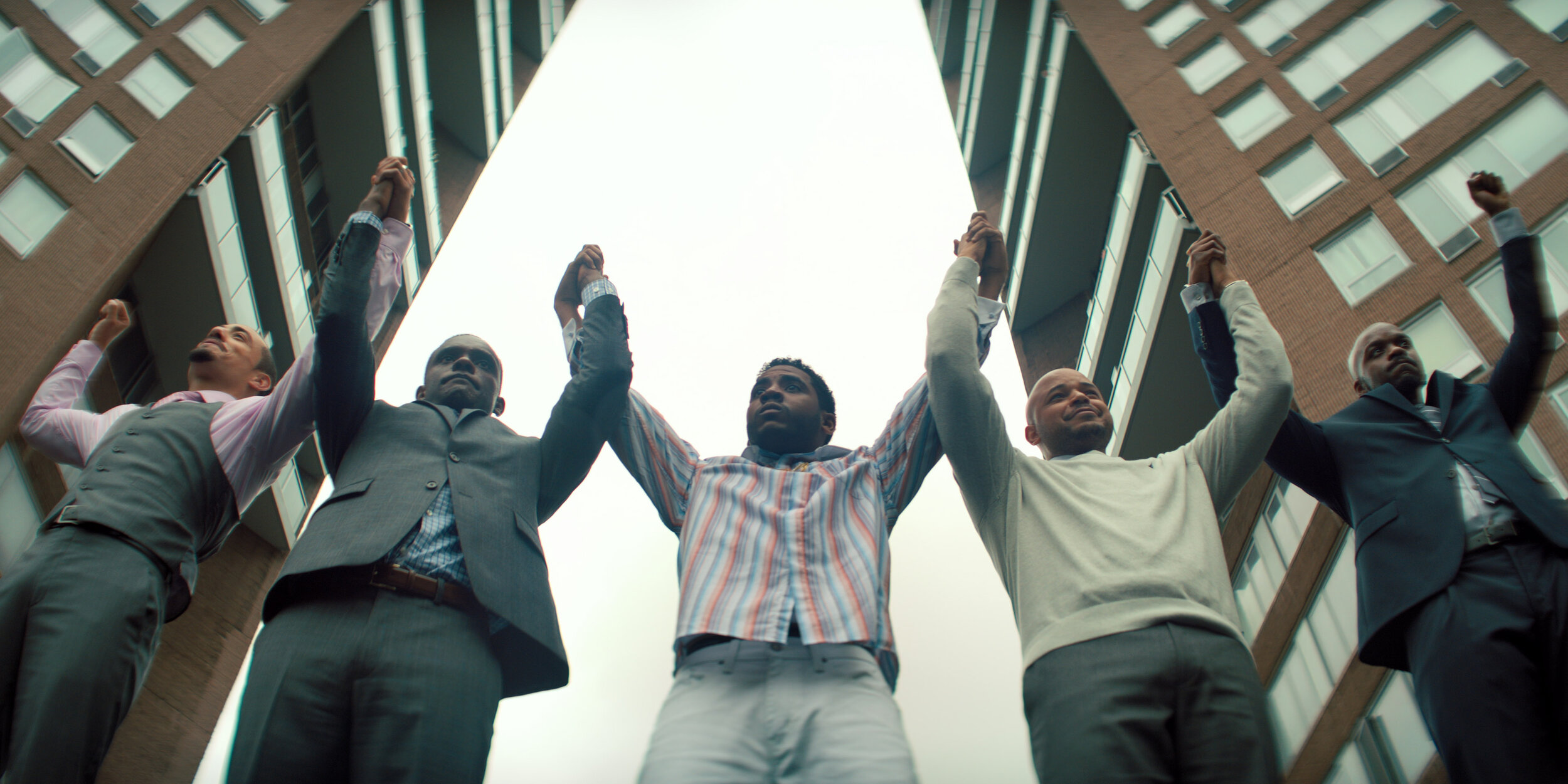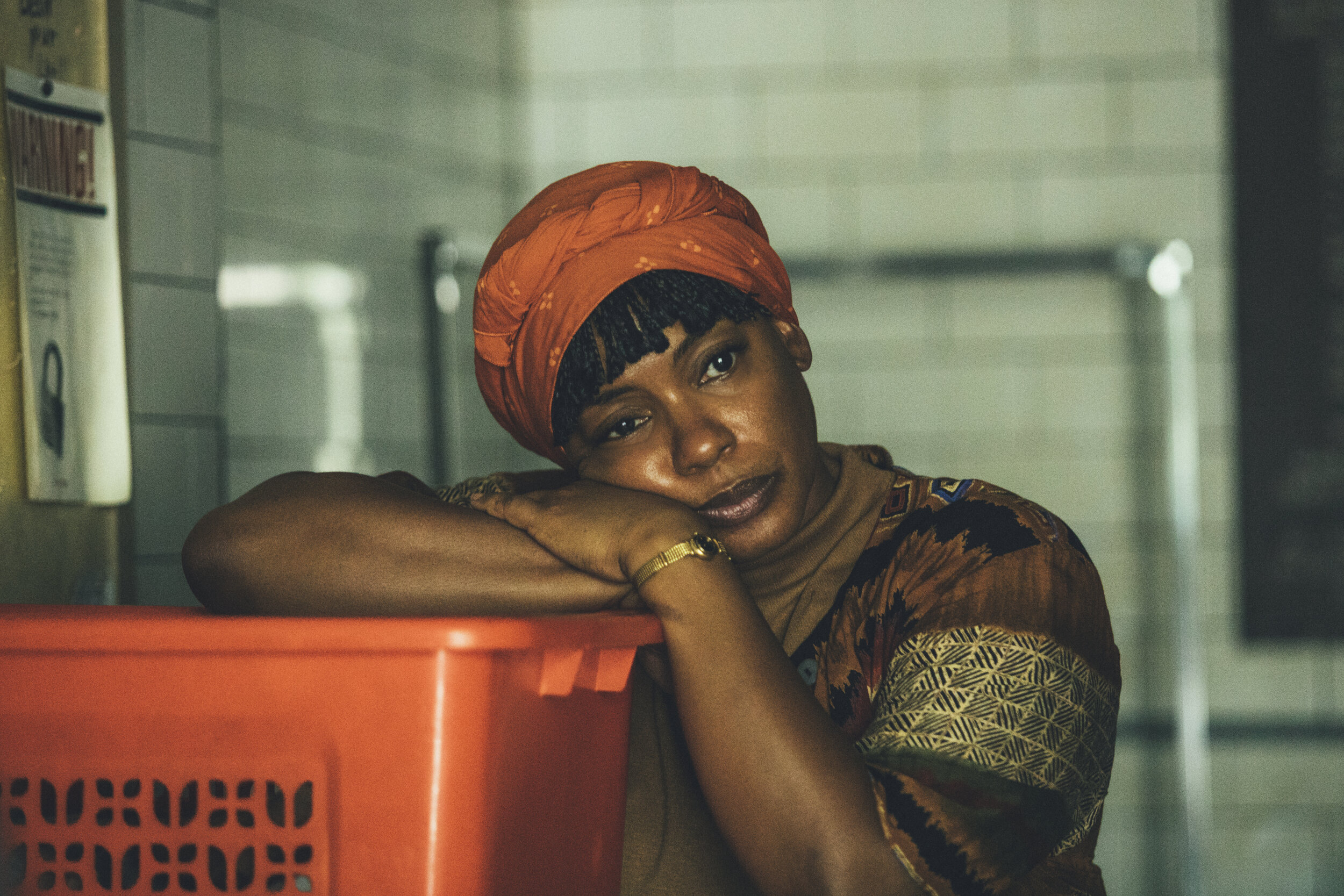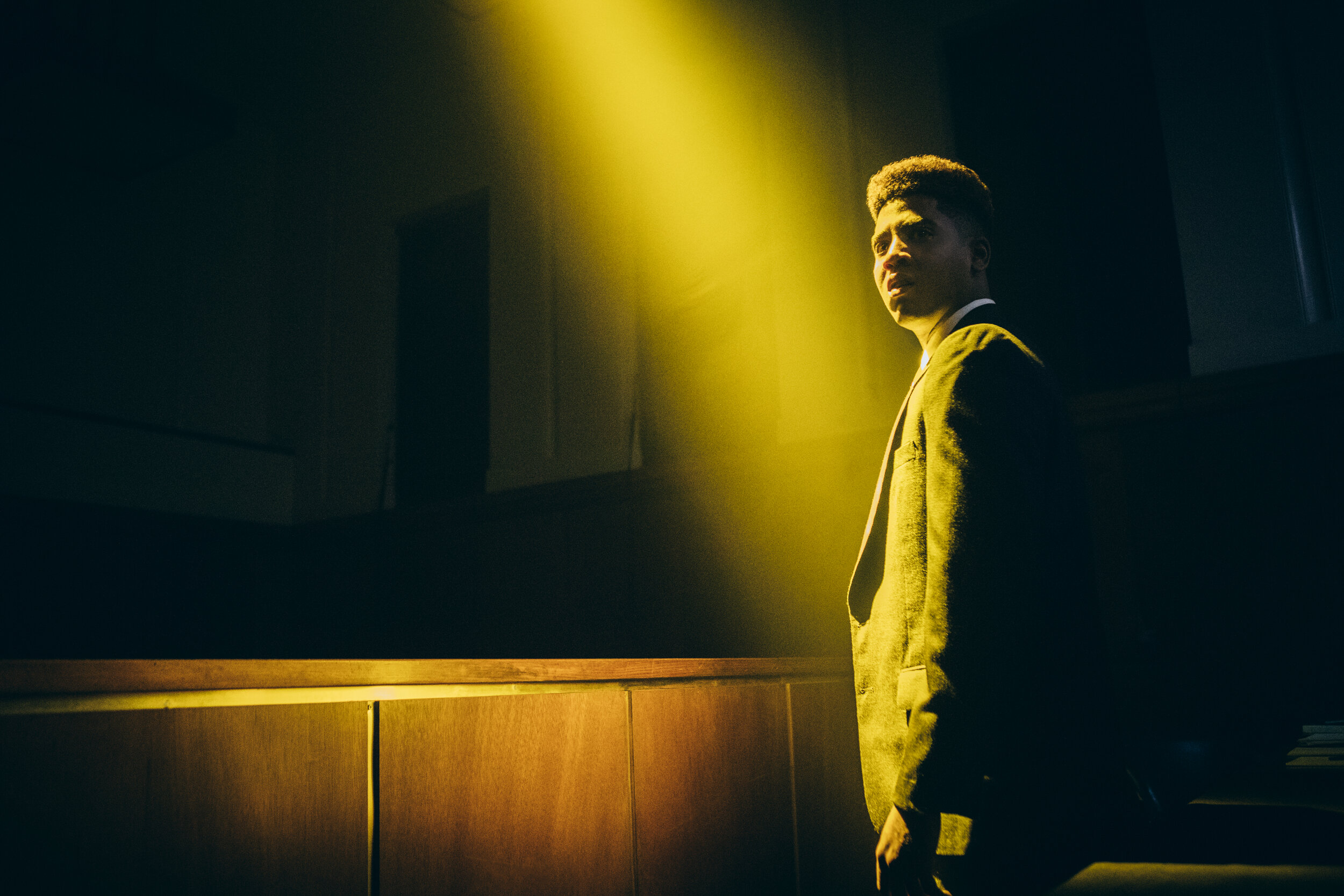Key themes
Positionality and Humanity
- Formerly incarcerated persons, especially those of color, have a difficult time reintegrating back into their communities.
- The number of barriers (employment, criminal history, education, skills deficits) can lead many formerly incarcerated persons to return to prison.
- Formerly incarcerated persons are often on parole for long periods of time and subject to many harsh conditions. Violation of those conditions can cause a person to return to prison.
Learning Objectives
+ Key Points
Discuss barriers to reentry and reintegration, including how age at the time of incarceration intensifies these issues.
The Exonerated Five faced exceptional challenges once released from prison. In addition to reintegrating into society, they were on parole, had to register as sex offenders and endured tremendous amounts of public scrutiny.
Key themes
Positionality and Humanity
- Formerly incarcerated persons, especially those of color, have a difficult time reintegrating back into their communities.
- The number of barriers (employment, criminal history, education, skills deficits) can lead many formerly incarcerated persons to return to prison.
- Formerly incarcerated persons are often on parole for long periods of time and subject to many harsh conditions. Violation of those conditions can cause a person to return to prison.
Learning Objectives + Key Points
Discuss barriers to reentry and reintegration, including how age at the time of incarceration intensifies these issues.
The Exonerated Five faced exceptional challenges once released from prison. In addition to reintegrating into society, they were on parole, had to register as sex offenders and endured tremendous amounts of public scrutiny.

EPISODE III
Recap
Years later, Raymond, Antron, Yusef and Kevin return home as men, navigating the challenges of reentry, including that of recidivism. Korey remains incarcerated in an adult facility.
EPISODE III
Activity
Family Affair: How Incarceration Can Damage Families And Communities For Generations
Participants will explore challenges faced by the families and communities of formerly incarcerated people.
Objective
Analyze and discuss how the criminal justice system impacts the families of formerly incarcerated people and their communities during imprisonment and after release.
Ideal Settings
The room or online classroom should be set up to allow everyone to see the film clips as they are shown.
Time
Prepare to spend up to 45-60 minutes on this activity.
Materials
Equipment to view Episode Three, pen or pencil, equipment to display the lists curated by the groups.
Reflection Questions
- How does each family react to their teen’s incarceration?
- How do incarceration and release impact the boys’ families and the community?
Each of The Exonerated Five’s family reacted differently to their son’s imprisonment and reentry, and each of The Exonerated Five had to adjust to a world and a family that had changed while they were in juvenile detention and prison.
Reflection Questions
- How does each family react to their teen’s incarceration?
- How do incarceration and release impact the boys’ families and the community?
Each of The Exonerated Five’s family reacted differently to their son’s imprisonment and reentry, and each of The Exonerated Five had to adjust to a world and a family that had changed while they were in juvenile detention and prison.

Class Discussion
Watch the following time-stamped clips from Episode Three:
- Antron 8:00 - 13:40
- Raymond 15:50 - 21:00
- Yusef 29:40 - 30:50
- Kevin 36:00 - 38:10
As a group, discuss how the families were impacted by their son’s incarceration. These could include:
- Relationships
- Employment
- Housing
- Mental and Physical Well-Being
- Financial
Next, consider the scale of damage brought by mass incarceration. Break into small groups and list ways neighborhoods, schools, businesses and other communities are impacted by incarceration. Come back together to share your findings.
Optional Homework Assignment
Participants should be given time to explore the following questions.
Policy interventions like the Ban the Box movement and prison education programs reduce recidivism. What are other policy interventions that help break the cycle of incarceration?
Continued Discussion
Seeing Myself In The System
How does incarceration impact families with wealth and social networks differently than those without?
The Cycle Continues
What is the generational impact of mass incarceration?
Disrupting Injustice
What actions can I take to support the communities disproportionately impacted by mass incarceration?
EPISODE III
3.5 Digging Deeper
- Incarceration Nation, by American Psychological Association
- Ban the Box
- Prison Studies Project
- U.S. Department of Health and Human Services: From Prison to Home: The Effect of Incarceration and Reentry on Children, Families, and Communities
- Strengthening Families and Communities, Vera Institute of Justice
- The Human Toll of Jail
- Who Pays? The True Cost of Incarceration on Families


